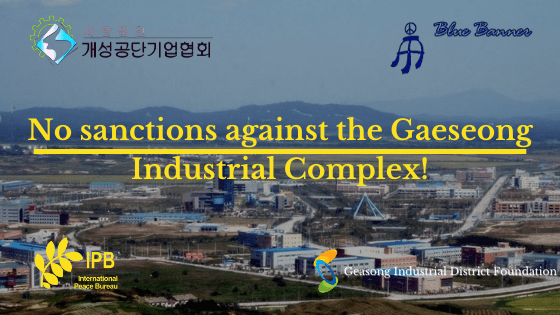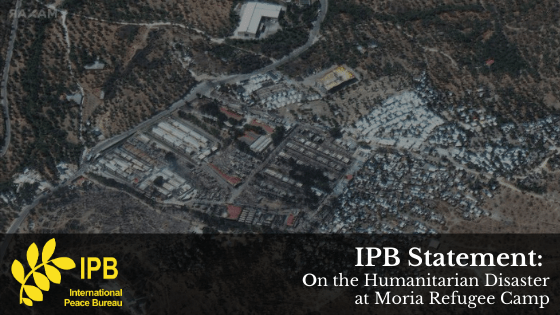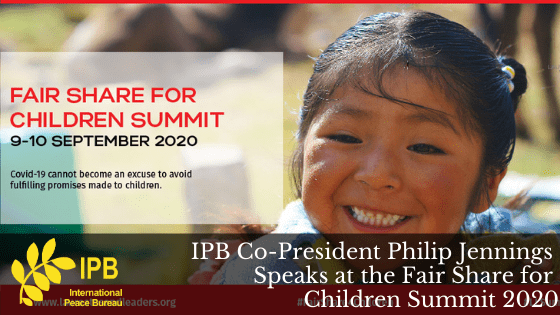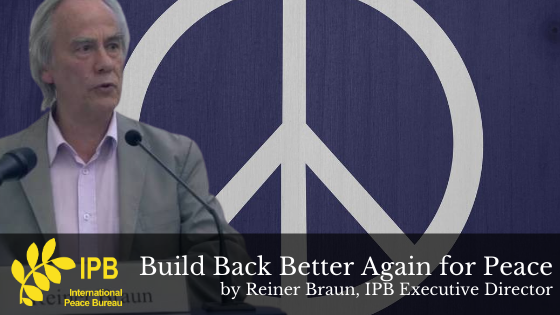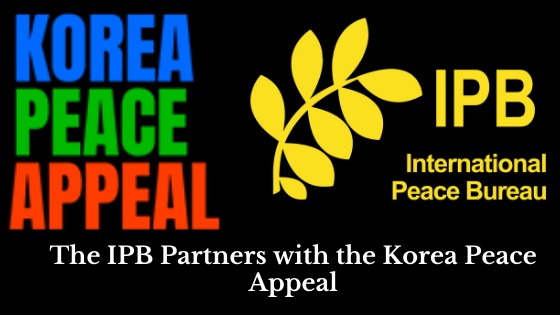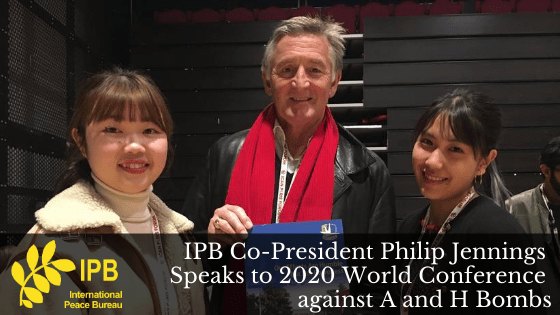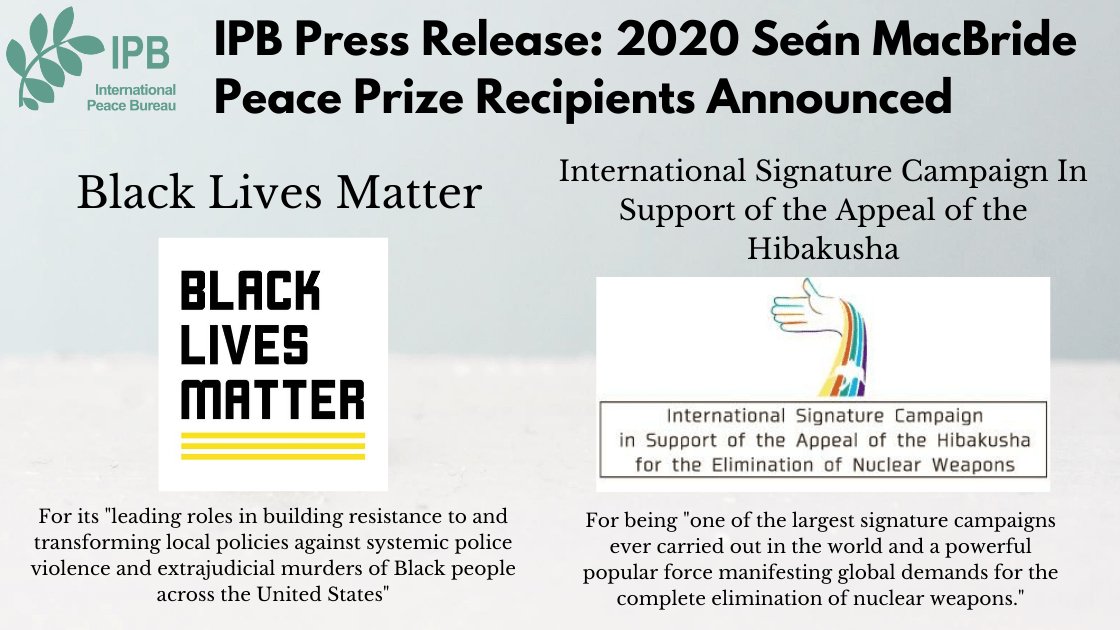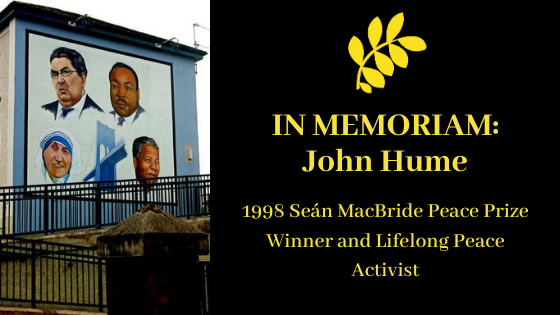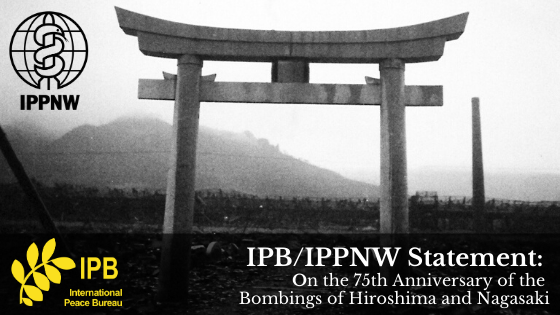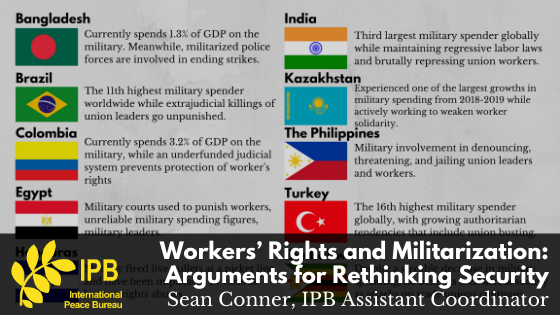The IPB, CAGIC, GIDF, and Blue Banner call on the United Nations Security Council (UNSC) to make an exception to sanctions for the Gaeseong (Kaesong) Industrial Complex (GIC), the inter-Korean industrial complex! Continue reading “No sanctions against the Gaeseong Industrial Complex (GIC)!”
Author: Assistant Coordinator
IPB Statement on the Moria Refugee Camp
The Moria Refugee Camp on the Greek island of Lesbos was home to more than 13.000 refugees. Despite the fact that it was only intended to temporarily host 3.000 people at a time. That was five-years ago. During the night on the 8th of September most of the camp burned to the ground, and what remains is left uninhabitable. Continue reading “IPB Statement on the Moria Refugee Camp”
IPB Co-President Speaks at the Fair Share for Children Summit 2020
On 10 September 2020, IPB Co-President Philip Jennings spoke at the Fair Share for Children Summit 2020, hosted by the Laureates & Leaders for Children. Philip’s speech, in full below, focused on the increased vulnerability of children on the move – particularly in the context of war and the Covid-19 crisis – reinforcing the call for a global ceasefire and a redirection of spending from the military to caring for the most vulnerable children.
Continue reading “IPB Co-President Speaks at the Fair Share for Children Summit 2020”
Build Back Better Again for Peace
We want to open a discussion on what ‘build back better’ means for peace and to develop support from the international peace movement for a very important discussion of worldwide transition. Continue reading “Build Back Better Again for Peace”
IPB Supports the Korea Peace Appeal!
IPB supports and cooperates with Korea Peace Appeal-End the Korean War and Establish a Peace Agreement signature campaign, led by 352 South Korean civil society organizations. Continue reading “IPB Supports the Korea Peace Appeal!”
IPB Co-President Philip Jennings Speaks to 2020 World Conference against A and H Bombs
On Nagasaki Day 2020, the 75th anniversary of the USA dropping an atomic bomb on the city, IPB Co-President Philip Jennings gave the following speech to the attendees of the 2020 World Conference against A and H Bombs: Continue reading “IPB Co-President Philip Jennings Speaks to 2020 World Conference against A and H Bombs”
MacBride Prize 2020 awarded to Black Lives Matter and Hibakusha Signature Campaign
The International Peace Bureau awards the Seán MacBride Peace Prize (see also here) every year to a person, or organisation, or movement in recognition of its outstanding work for peace, disarmament, human rights. It is named after Seán MacBride, a Nobel Peace Prize winner who was chair of the IPB from 1968–74 and president from 1974-1985. Continue reading “MacBride Prize 2020 awarded to Black Lives Matter and Hibakusha Signature Campaign”
In Memoriam: John Hume
Written by Colin Archer, former IPB Secretary-General
A great loss of a great man: IPB echoes the many tributes flowing in from around the world, and from within his own city of Belfast, following the death on Aug. 3 of John Hume, the co-founder and leader of the Social Democratic and Labour party (SDLP) of Northern Ireland. See Guardian obituary and comments from his biographer.
IPB awarded John the Sean MacBride Peace Award, shortly before the announcement of his receiving the Nobel Peace Prize. In his MacBride acceptance speech, held in Brussels in October 1998, he lavished praise on the European Union as a great peace-making institution. Indeed, as a Member of the European Parliament he had been able to harness its influence and prestige in support of the Irish peace process. Just four years earlier, in Sept. 1994, IPB’s Cora Weiss had organised an Irish Peace Process Tour to encourage all the parties to take advantage of the IRA Ceasefire and move more swiftly to an inclusive peace agreement.
Many more links about John Hume’s work are available at: https://www.betterworld.info/peace/peace-prizes/sean-macbride-peace-prize/1998-john-hume-northern-ireland
IPB/IPPNW Statement on the 75th Anniversary of the Bombings of Hiroshima and Nagasaki
Statement on the 75th Anniversary of the bombings of Hiroshima and Nagasaki
Invitation to August 9 special worldwide screening of “The Vow From Hiroshima”
*Updated on 16 July 2020 to reflect Botswana’s TPNW ratification
As we recall the unprecedented horrors that the citizens of Hiroshima and Nagasaki experienced on August 6 and 9, 1945, we reaffirm the determination of our organizations to ensure that nuclear weapons are never used again. Continue reading “IPB/IPPNW Statement on the 75th Anniversary of the Bombings of Hiroshima and Nagasaki”
Workers’ Rights and Militarization: Arguments for Rethinking Security
In June 2020, the International Trade Union Confederation (ITUC) released the Global Rights Index 2020, a report on workers’ rights in 139 countries. The report painted a bleak picture for working people across the globe, most of all in the ten worst countries for working people. That list includes Bangladesh, Brazil, Colombia, Egypt, Honduras, India, Kazakhstan, The Philippines, Turkey, and Zimbabwe. Continue reading “Workers’ Rights and Militarization: Arguments for Rethinking Security”

